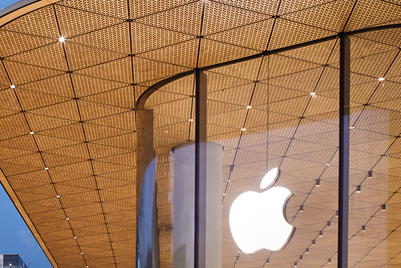
But in the real geolocation wars, these start-ups may prove to be toy soldiers. Significantly bigger companies want in on this new digital trend - from sizeable brands like Twitter and Yelp to the real web behemoths, Facebook and Google.
Google’s Buzz service already lets users ‘geotag’ their status messages with their location. Its Google Latitude project has been live for over a year. Facebook’s plans are less clear, with public knowledge largely limited to some small privacy policy modifications clarifying how the social network regards location data. Yelp quietly rolled out check-ins of its own earlier this year and Twitter already has an application programme interface that lets users ‘geotag’ their tweets with a set of coordinates.
“I think the main fear for services such as Foursquare is that the big players will simply make geolocation a main feature of their own platforms,” says Adam Hemming, general manager of ZedDigital. “As more and more Facebook usage becomes mobile-based, it certainly seems to lend itself to geolocation features. The main advantage that Foursquare currently has is a large database of venues, but given the size of the user base of Facebook, that could probably be replicated very quickly.”
But more important for these players is the fact that there is money in geolocation: marketers are keen to be able to target users based on the most intricate of details. A location-based networking service could offer the opportunity to serve ads specifically to people who frequent a certain kind of clothing store, who stay out late at night, or who travel regularly — and far more precisely and insightfully than a Facebook profile.
Retailers have been the early adopters, utilising incentive schemes to promote engagement. But brands will need to understand that just because users check in to a nearby location, it doesn’t mean they are your target audience for an offer.
As the space matures, demographic and psychographic information will start allowing marketers to more accurately segment and target influencers through to prime consumer prospects.
“So far, brands haven’t really got into it. They’re just discovering it now. Starbucks offers promotions and reward points that can be redeemed according to its location-based users,” says Ian Stewart, former head of Asia for Friendster.
However, like its predecessors, the geolocation players will see major, complicated privacy concerns. “You don’t necessarily want to tell 400 odd friends where you are,” says Hemming. “Everyone in my friendship circle knows where I am, and so do the burglars.”
Stewart adds the way to get around privacy issues, for now, is for these networks to provide technology that allow users to turn the service on and off so it’s not tracking 24-7. “It also makes sense because the GPS charges would be huge if you had it on the whole time,” he says.
Got a view?
Email kate.nicholson@media.asia
This article was originally published in the 8 April 2010 issue of Media.



.jpg&h=334&w=500&q=100&v=20250320&c=1)


.jpg&h=334&w=500&q=100&v=20250320&c=1)
.jpg&h=334&w=500&q=100&v=20250320&c=1)

.png&h=334&w=500&q=100&v=20250320&c=1)








.jpg&h=268&w=401&q=100&v=20250320&c=1)
